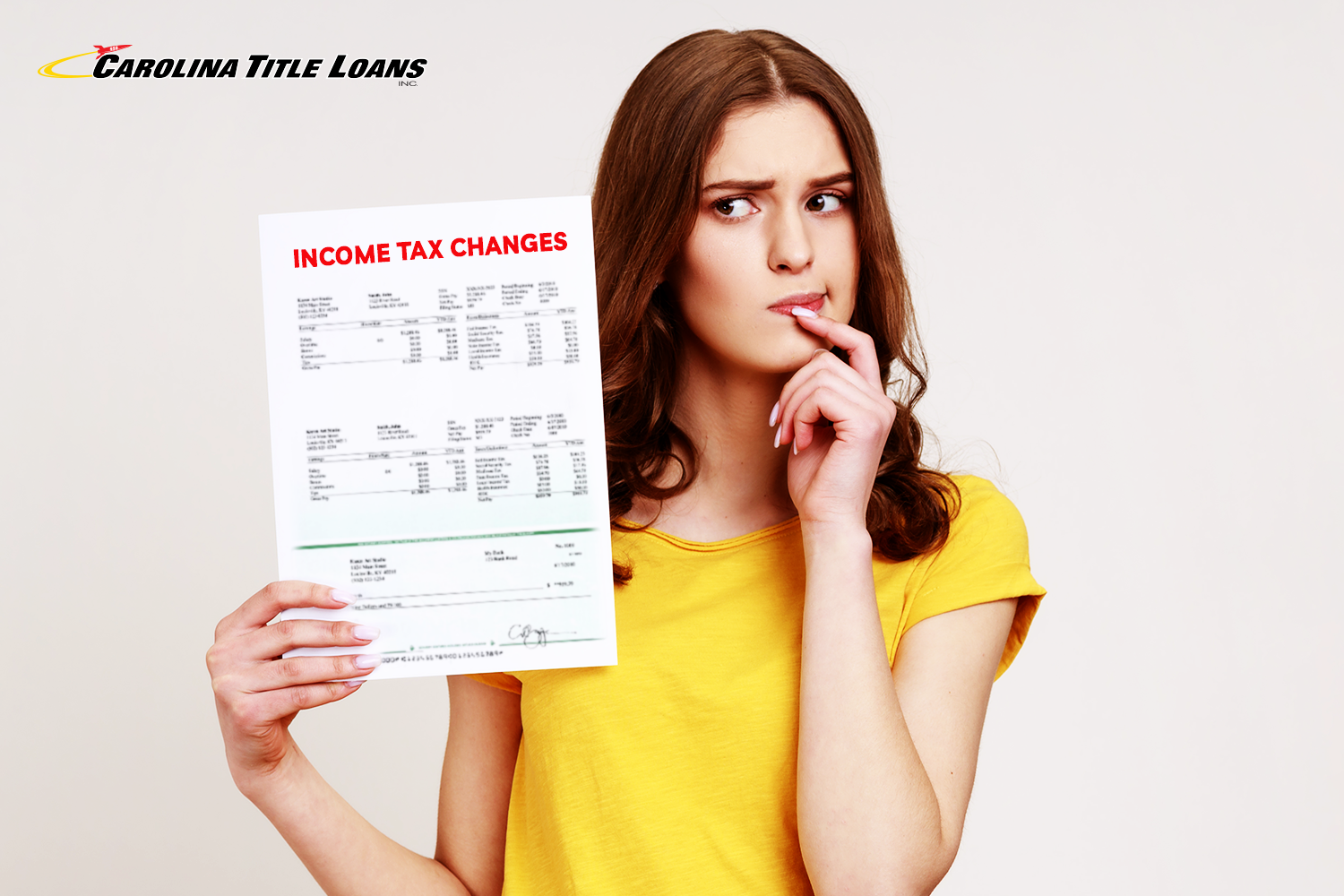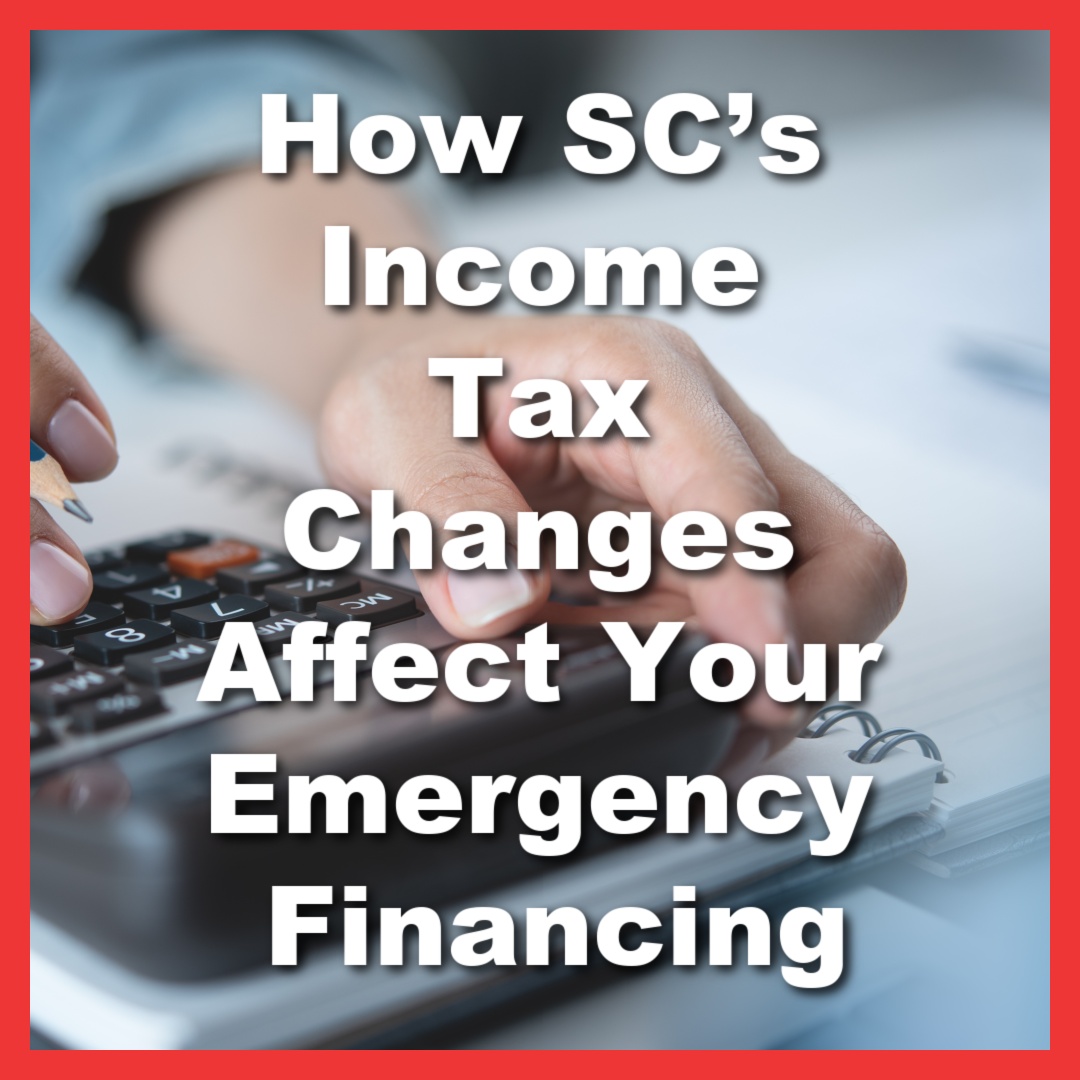
How SC’s Income Tax Changes Affect Your Emergency Financing
In May 2025, the South Carolina House of Representatives passed an amended version of H.4216, a bill to reform the income tax. Because there is bipartisan agreement that the current progressive income tax system is complicated, this recent reform shows that the state is serious about eliminating income tax entirely.
Despite the seemingly positive first impression, some are worried that the SC flat tax impact may exceed expectations, causing rises for many individuals before settling into an affordable rhythm. In this guide from Carolina Title Loans, Inc., we'll explore the specific changes and how you can manage financial urgencies in this evolving climate with title loans.
How Has South Carolina's Income Tax Changed?
The original bill stated that South Carolina's income tax brackets would be consolidated into a flat 3.99% rate. However, the amended version changed that, creating a two-tiered system with a 1.99% rate on income up to $30,000 and a 5.39% rate on income above that.
Additionally, the latest H.4216 updates outline two main options for how long tax relief lasts. Before activating the tax relief, the bill requires a 5% increase in revenue, after which it allocates 25% of the state's recurring general fund, or $200 million, to reduce income tax.
The question is: why? Experts say that this combination makes sure any future tax cuts are based on real results, not just hopes.

Explaining The SC Flat Tax Impact
Since South Carolina currently has the highest personal income tax rate in the Southeast, the flat tax would immediately reduce to 5.39% from 6.2% on income over $30,000 and to just 1.99% on income under $30,000.
The bill proposes a transition to a flat tax rate of 1.99%, which would eventually be eliminated. This would make South Carolina's income tax the lowest in the nation, surpassing Arizona's 2.5%. It aligns with states like Tennessee, Florida, and Texas that have no income tax.
Currently, the bill would cut taxes for nearly 40% of the state's filers while raising them for about 25%. Although this creates a large imbalance, experts say it can be fixed if policymakers target the deduction system or lower rates further by cutting spending.
How Do Income Tax Changes Affect Emergency Financing?
You now know precisely how the state's income tax is changing and the impact it's had on individuals in general, but what about its effect on emergency cash planning in South Carolina? With some people experiencing higher income tax rates than before, there is likely to be some fallout, resulting in more families requiring one-time emergency funds.
On one hand, the lower tax rate means both individuals and businesses pay less tax, freeing up more funds for emergencies. Of course, this doesn't apply to everyone (yet), but the overall decrease is clearly positive for those who paid high rates before the H.4216 amendments. However, South Carolina's budget requires the Department of Revenue to lower the interest rate paid on refunds.
If you've overpaid your taxes and are owed a refund, the interest you earn will be lower. This can increase the time it takes for you to access emergency funds. After all, a smaller refund means you can't cover larger emergencies as quickly. Additionally, you may receive an emergency tax code while your bill is being processed, which can lead to an overpayment and delay the receipt of your refund.
What Comes Next For Income Taxes In South Carolina?
Currently, the Senate has the opportunity to build on the existing momentum by keeping the surplus trigger, enhancing fairness and simplicity, and ensuring the most sustainable and manageable flat rate.
The intentions are clear — the legislation should take effect in early 2026. However, work should start beforehand. As long as the government limits the growth of state spending, more revenue will be available to speed up the reduction of the top income tax rate, helping South Carolina reach zero percent income tax as quickly as possible.
Handling Emergencies In South Carolina
There are many areas of this journey to zero income tax that are unclear, making it hard for people to budget for emergencies or access quick cash when they need it most. If this sounds relatable, you're in the right place.
Handling emergencies during changing financial times may not be your first thought, but it's crucial to remember that life doesn't wait for the perfect moment to throw you a curveball. Knowing where to turn will save you headaches later.
While there are many state-sponsored programs you can access if you meet the eligibility requirements, you can also get a title loan from us at Carolina Title Loans, Inc. You don't need a good credit score to qualify. Instead, you just need to own your car outright without any liens or judgments. If you can prove this, you may qualify for amounts between $601 and $15,000, based on your vehicle's value.
We consider many factors when assessing your car, truck, or van's worth, including but not limited to the following:
- Current market value — We'll start by looking at the fair market value for your vehicle using accredited online tools, so you can get a feel for how much you may be able to borrow.
- Condition — We'll assess your vehicle's mechanical and cosmetic condition. Everything from bumps to scratches, dents, and stained interiors can decrease its value, so be sure it's in good condition before attempting to get a title loan. The closer your vehicle is to pristine condition, the more your title loan could be worth.
- Odometer reading — Average mileage is considered to range from 10,000 to 12,000 miles per year. Any odometer readings below this will be worth more than the same make and model with an odometer reading above this range.
- Modifications — No matter how many customizations you've made to your vehicle, they tend to decrease its value rather than increase it. Why? Because other people may struggle to see the same value in them. Therefore, custom paint jobs, modified exhausts, spoilers, decals, and similar additions can lower your vehicle's worth.
- Service history — Vehicles with complete service histories are worth more than those without. Taking care of your car pays off in more ways than one! Providing your vehicle’s maintenance history can help establish its value. As long as you have gotten regular checkups, you should be in a good position to borrow cash today.
Beyond your vehicle, you will need two other required items: a lien-free title (to prove your lien- and judgment-free ownership) and a state-issued identification (such as your passport, driver's license, or student ID card). Apply for a title loan online today, and we will call you to explain how you can get approved in person in less than 30 minutes at one of our South Carolina store locations!

Borrow Title Loans In South Carolina – Receive Up To $15,000 Today!
If you need emergency financing after recent tax changes, Carolina Title Loans, Inc. can help. Borrowers who have paid off their vehicles may qualify for a quick title loan today. You can get approved the same day you apply and keep your car during repayment. Apply online by filling out our contact form before visiting us in person to secure fast title loan approval!
Note: The content provided in this article is only for informational purposes, and you should contact your financial advisor about your specific financial situation.